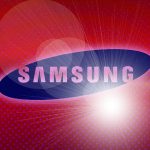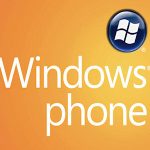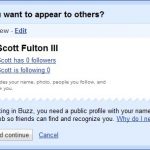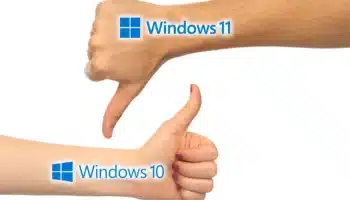Samsung's first Bada phone to be shown next week?

In November, Samsung launched its own open smartphone platform called Bada, which the company positioned as a replacement for Symbian, and eventually the rest of Samsung's proprietary non-smartphone operating systems.
Since that time, Bada has been keeping a pretty low profile. Samsung showed off screenshots of its UI and some quick videos of software (and Flash) running on the platform at a London event last December. The company also said the first Bada phone would be available in the first half of 2010.
Windows Phone rumors ramp up in advance of Mobile World Congress

The Mobile World Congress in Barcelona next week looks like it will play host to the usual range of exciting announcements in the mobile devices and software field. Based on the continued appearance of enticing rumors, Microsoft's Windows Phone platform looks like it will be one of the main attractions this year.
At 9:00 A.M. Eastern Standard Time, CEO Steve Ballmer is expected host a press conference unveiling the latest Windows Mobile developments, which could be anything from the official announcement of Windows Mobile 6.5.3 to the launch of Xbox Live-enabled games on Windows Mobile to a so-called "Zune Phone."
10 ways Microsoft can save Windows Mobile -- starting NEXT WEEK!

What will Microsoft CEO Steve Ballmer announce during Monday's Mobile World Congress press event in Barcelona, Spain? There's what he will announce and what he should. I'm skipping the speculation about what and going right to should. Microsoft's mobile strategy is a mess. Apple and Google have routed Microsoft in mobile operating systems. Android and iPhone OS make Windows Mobile look about as fresh as Windows 95. Meanwhile, Microsoft has chased Research in Motion's BlackBerry in the enterprise for years, never making any real gains.
It's long past time for the Big Ballmer to step up and offer something substantial -- not promises of future technology coming but goodies available immediately or nearly so. I've condensed what easily was a list of 15 or so items down to 10 things Microsoft must do immediately to save Windows Mobile from extinction. Microsoft has no more time. It's do or die, and even doing now may be too late. With that introduction, Microsoft should:
Google adjusts Buzz setup for privacy, makes 'public' choice more obvious

Already sensing that too many potential users were attributing the "evil" moniker to Google (in the absence of actual evil in the world), the company yesterday made adjustments to its Google Buzz sign-up procedure. In Betanews tests, we found Google's altered dialog box is much more descriptive about the repercussions of setting up a public profile. It uncovers a critical choice about what you share with others publicly, that had been buried beneath an Edit link, by copying it up front where everyone can see it.
The danger involved with a new user setting up Buzz without being mindful of its default consequences, is that her public profile can be automatically filled with the names and profile links of Gmail contacts she communicates with most. Betanews tests this morning indicate that changes Google has made to Buzz setup appear to reduce that danger somewhat:
Opera 10.5 leaps to beta, holds on to unexpected performance lead

Download Opera 10.5 Beta 1 for Windows from Fileforum now.
Just yesterday, we saw yet another daily build of what Opera Software was calling its "pre-alpha" of the Opera 10.5 Web browser, a product that the company certainly wanted folks to test, even though they were warned it wasn't even ready for daily use. With various software publishers' development schedules being organized so differently from one another, it's difficult enough distinguishing "previews" from "alpha previews" from "preview alphas" -- just yesterday, for example, Mozilla finalized a public "developer preview" of Firefox 3.7 Alpha 1, closing off its "Alpha 1 preview" track before starting, on the same day, its "Alpha 2 preview" track.
Marvell launches the next 1 GHz smartphone processor

At CES 2010, chipmaker Marvell showed off its ARMADA 610 applications processor for tablets, mobile internet devices (MIDs), media players, and other portable connected devices. The impressive ARM v7-based chip runs at 1 GHz and is capable of encoding and decoding full 1080p HD at 30 fps, and 3D rendering up to 45 million triangles per second. At its CES booth, Marvell showed a single reference model tablet rendering 3D graphics while playing full HD video smoothly through HDMI on a 30" television. Marvell said the chip's display controller is actually capable of playing video on four simultaneous displays with 2k x 2k resolution.
Today, just ahead of Mobile World Congress, Marvell announced it will be showing off the next chip in the 600 series, called the ARMADA 618, which is a close relative of the 610 especially suited for smartphones.
Why is Google suddenly so evil?

Google is the great Internet God of goodness, or so claims No. 6 of the company's "10 Things" corporate philosophy list: "You can make money without doing evil." But this week, Google has suddenly put its doing no evil claims in doubt.
Yesterday, Google launched social networking service Buzz with opt-out privacy settings, meaning that a user's list of followers and followees are fully viewable in Google Profile, by default. Unrelated, but by Twitter -- ah, buzz -- standards even more evil: Google deleted six popular music blogs hosted at its Blogger service.
Google Buzz's first victim: Facebook

For all its success in turning mostly free Web-based services into lucrative rivers of cash, Google's been a miserable failure in the social networking space. While Facebook marched from a Harvard dorm room to a global army of 400 million users and Twitter became the short-form darling of politicians and celeb-utantes alike, Google threw one project after another at the wall (Orkut and Wave, anyone?) and hoped at least one of them would stick long enough to gain traction.
They never did. Orkut may be huge in Brazil and India, but it's virtually invisible everywhere else. Wave disappeared into the ether after its much-hyped public launch last September. Less ambitious steps toward creating a more social online experience (like baking Google Talk into the Gmail interface) similarly vanished from the tech culture radar almost as soon as they appeared.
TiVo teases something new with private event invites

Who says Apple is the only company that puts out enticing invitations? Today, TiVo sent out invites to a private March 2 event in New York City that simply reads, "Inventing the DVR was just a warmup," with no other hints as to what the event is for.
For a single statement, it's a pretty big one, considering TiVo popularized the viewing model that made linear broadcasting more or less obsolete.
Mobile World Congress preview: Netbooks to soar, femtocell gadgets may flop

Netbook sales are starting to inch closer to those of smartphones and laptops, while Google Voice is set to pose a serious challenge to Skype, according to an analyst report to be presented at next week's Mobile World Congress in Barcelona, Spain.
In other findings, femtocell boxes -- already available in the US through Sprint, for example -- will not sell as well as first anticipated, because "the added value a femtocell will bring is too low in the eyes of end users," says the upcoming report from analyst firm IDATE.
Microsoft announces Office for Mac 2011: New UI, Web-based tools, no Entourage

At Macworld 2010 today, Microsoft unveiled the latest version of its Office productivity suite for Mac OS, which brings a new UI design, new collaboration tools, and replaces Entourage with Outlook for Mac.
Microsoft today said the new look of Office for Mac is based on Office 2008 Elements Gallery, and combines the standard Mac menus with Office toolbars, so the design is peculiar to the Mac, but stays true to the Office ethic.
Shazam finally hooks up with Pandora and Last.fm

Music identification software Shazam is indispensable. When users hear a song they don't know playing in a commercial, over the radio, or on the PA at a club, and they want to know what the song is, all they have to do is fire up Shazam on their smartphone, let the app "hear" the song, and it identifies it.
As useful as it is, Shazam has kind of been a one-way street: It identifies (or "tags") the song and then links the user out to other services. For example, the user can then purchase the song, go to YouTube to watch related videos, or go to the artist's MySpace page, all where applicable. But up to now, the app ended there, and the list of songs a user has tagged didn't get used anywhere.
Does Google Buzz offer better privacy than Facebook?

With Google already the center of controversy worldwide over how it uses the information it gleans from its search users, red flags were almost certain to be sent up over Google Buzz, announced Tuesday. It's the company's new social platform for sharing bits of Twitter-like communication, and it's built rather cleverly on its existing Gmail platform.
The red flags concern how Google leverages Gmail to create a pre-established social network for Buzz users. Unlike a fresh, new social network that asks incoming users to build their lists of followers from scratch, Buzz starts out by collecting a list of folks who appear to be doing the most communicating with the incoming user via Gmail.
Windows XP WGA validation 'spyware' case dismissed

On Monday, a US District Court in Seattle dismissed with prejudice a class action case originally brought by Los Angeles native Brian Johnson in the summer of 2006. Johnson's claim at the time was that, when Windows XP used Microsoft's Windows Genuine Advantage (WGA) feature to validate his rights to use a newly purchased XP, Microsoft not only employed software not covered by the end-user license agreement, but used it to transmit his personal information to Microsoft against his wishes.
His allegation was that XP violated California's and Washington state's statutes regarding spyware -- separate software that transmits personally identifiable data back to a source.
Facebook Chat is now accessible on popular instant messaging clients

Making good on a promise delivered just about one year ago, Facebook announced today that its popular chat feature can now be accessed through any Jabber (XMPP)-compatible desktop instant messaging software, including AIM, iChat, Pidgin, Adium, and Miranda.
Users can simply connect their Facebook account with their instant messaging client of choice and they can then chat with Facebook friends without having to stay logged into the social networking site.
BetaNews, your source for breaking tech news, reviews, and in-depth reporting since 1998.
© 1998-2025 BetaNews, Inc. All Rights Reserved. About Us - Privacy Policy - Cookie Policy - Sitemap.




